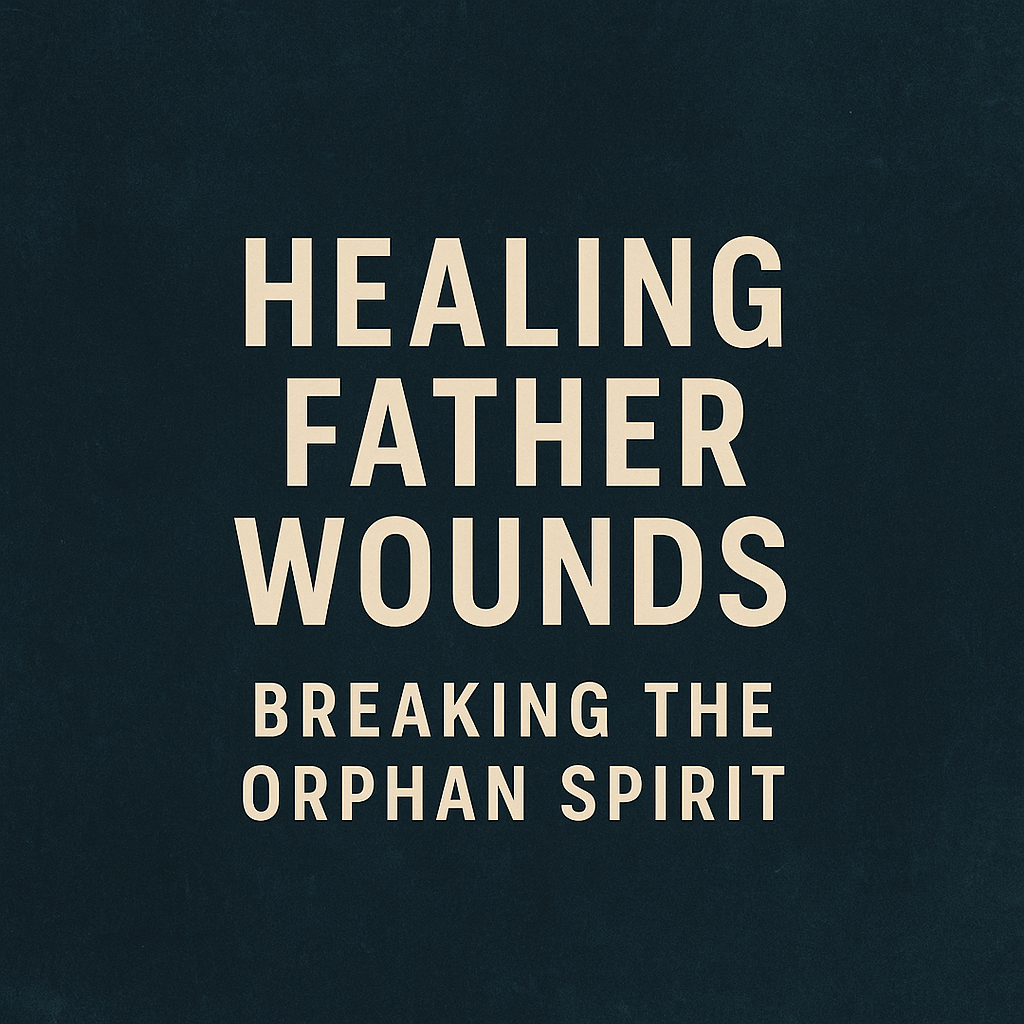Orphans it’s time for you to come home to the Father.
Five Things We Will Learn
- Why God’s present move is tied to knowing the Father’s heart.
- What the orphan spirit is, why it persists—even in ministry—and how it shows up in Gen Z.
- How sonship changes identity, ministry, and the way we see people.
- How Jesus’ honor-first approach (John 4) opens hearts across cultures and religions.
- Why the coming harvest must be a family harvest—sons and daughters, not spiritual orphans.
A Turn Toward the Father’s Heart (Setting the Table)
“The more I’m interviewing people, the more I’m realizing that God is truly wanting to move, that God is for us.” In this episode we sit with Leif Hetland—an internationally-traveled minister who has seen over a million people come to Jesus and who carries a well-known message on the Father’s heart. He’s authored Healing the Orphan Spirit. “ I truly believe we’re on the cusp of revival. The part of the Trinity our generation desperately needs to understand right now is the Father—the One who loves us, carries vision for our lives, and disciplines us because He loves us.
The part of the Trinity our generation desperately needs to understand right now is the Father—the One who loves us, carries vision for our lives, and disciplines us because He loves us.
I believe my generation is carrying so much junk, and the major one is the orphan spirit. Going into ministry doesn’t automatically make it leave. God wants to move; the better question is not “How do I make Him move?” but “What grieves Him? What’s stopping Him from coming?” I believe He’s about to come in glory—whether that means the Lord’s return or a sweeping awakening—and I want to be holy, pure, and honoring to what God is doing. To do that, I need to know the Father and let Him get the stuff out of me.
I believe my generation is carrying so much junk, and the major one is the orphan spirit. Going into ministry doesn’t automatically make it leave.
A personal word: my dad has often carried vision for me when I didn’t see it. God can do that for you. With that heart, we welcomed Leif Hetland—founder and president of Global Mission Awareness—to share his journey.
Meet Leif Hetland (Biography in His Own Words)
“I’m from Norway—a Norwegian—almost 60, married 36 years to my beautiful wife, Jennifer, an American. We have four kids who are dual citizens. I first came to Los Angeles in 1985 when Ronald Reagan was president. We moved back to Norway in the ’90s for a time, then returned to the States.
I operated with an orphan heart. When I captured sonship—when Papa God became my Father—I realized we needed family to do the mission.
“I had been going to the nations for about five years and seen a lot—but I operated with an orphan heart. When I captured sonship—when Papa God became my Father—I realized we needed family to do the mission. Global Mission Awareness became a family on mission, and as sons and daughters grew and started movements, we became a family of families on mission, now in 22 countries, discipling not only people but nations.”
Related:
What the Orphan Spirit Looks Like—and How It Heals
Leif shared how he lived like an orphan though he had good parents and a good home—because of love deficiency and father deficiency. He knew Jesus and the Holy Spirit, but his image of the Father did not look like Jesus. He began asking four questions:
- How do I see Papa God?
- How does He see me?
- How do I see the world?
- How do I see the future?
“I realized I had a view of Papa God that didn’t look like Jesus.
“I realized I had a view of Papa God that didn’t look like Jesus. So I decided to see everything about Jesus in the Gospels as a window into the Father—because Jesus said, ‘If you’ve seen Me, you’ve seen the Father.’ I found that 93% of people in America—even many believers—carry a view of God that doesn’t look like Jesus.”
“I found that 93% of people in America—even many believers—carry a view of God that doesn’t look like Jesus.”
That shift—seeing the Father as Jesus reveals Him—changed everything: identity, behavior, how he saw people (including those he’d labeled “enemies”), and how he did ministry. He began treating people based on destiny, not history or current behavior. He also pointed to staggering societal cost: “The orphan spirit costs the world $9.5 trillion a year; the world’s basic needs, about $950 billion.” (His point: fatherlessness is not just personal; it’s civilizational.)
“The orphan spirit costs the world $9.5 trillion a year; the world’s basic needs, about $950 billion.”
Orphan Metrics vs. Sonship Reality
How does the orphan mindset show up in ministry?
- Self in the center. “I’m the pastor/apostle/evangelist.” The focus is the powerful person, not raising powerful people.
- Performance identity. “I am what I do, what I have, and what people say about me.” Size, crowds, and optics replace relationships and fruit.
- Comparison and competition. Others’ success threatens me. Scarcity eclipses family abundance.
“The orphan spirit will either rise up in rebellion or establish a religion—and it was both the rebellious and the religious who crucified Jesus.”
How does sonship operate instead?
- Identity: “I already AM”—secure in the Father’s love. “I have an A+ before the [this] podcast begins.”
- Inheritance: “All that my Father has is mine.” (Maturity determines what we can steward; the Father is wise not to hand us a “Ferrari” at sixteen.)
- Obedience from love: “I don’t do this to be loved; I do it because I’m loved.” Free sons and daughters set people free.
“There is no failure where there is a Father.”
Honor First: Jesus’ Way with the Woman at the Well
How does the Father’s heart approach those of different worldviews, like Muslims? Leif follows Jesus’ pattern in John 4. Jesus “had to” go through Samaria and chose a well—a unifying place of shared need. He began with honor: “Would you give Me a drink?” He dignified the person before addressing brokenness.
Jesus “had to” go through Samaria and chose a well—a unifying place of shared need.
Leif’s practice: even if he disagrees with 99%, he finds the 1% he can honor—even in “radicals” or “terrorists.” Honor is love made visible. From there he offers living water—truth wrapped in grace:
- Truth without grace is mean.
- Grace without truth is meaningless.
- Grace and truth together are medicine.
He also reframes stories with Jesus’ lenses rather than church-culture lenses. The Samaritan woman wasn’t just “loose”; in that culture, women couldn’t divorce. She had been violated by love five times. Jesus met her with honor, revealed truth, and invited her to become a worshiper of the Father in spirit and truth—bringing her home to the family table.
From Orphanages of Performance to Families on Mission
Leif contrasted orphan-built “Babel systems”—celebrity-centric, performance-driven spiritual orphanages—with families on mission that call out destiny and raise sons and daughters into maturity. Healthy doesn’t mean perfect; it means whole enough to create a culture where people thrive, disagree honorably, and hold unity in diversity without compromising truth.
The shaking across geopolitics and the church is dismantling orphan systems.
He believes the shaking across geopolitics and the church is dismantling orphan systems. In their place God is raising healthy families filled with love and power as the new normal—where creative miracles are ordinary to a generation born into presence and family.
“The billion-soul harvest cannot be a billion orphans; it must be sons and daughters.”
Inheritance and the Generational Floor
Leif often says, “Our ceiling becomes your floor.” He testified how spiritual “babies” from 20 years ago now move in creative miracles as normal life, raising the bar for what’s possible. The call to Gen Z: receive the inheritance paid for by fathers and mothers in the faith, invest it (not spend it), and pass it forward so cities and nations are transformed.
Closing Prayer (For You and Your Generation)
Jesus said, ‘I will not leave you as orphans; I will come to you’ (John 14:18)
“Father, what a privilege to sit at Your table with the Holy Spirit more real than any one of us. Thank You for hungry sons and daughters who want to know You as Papa God and become healthy fathers and mothers. Jesus said, ‘I will not leave you as orphans; I will come to you’ (John 14:18). You didn’t just save us from something but to something—back to everything You intended. For those longing for belonging, bring them home to the family table and into community where they can thrive, not just survive. The Father is waiting for prodigal sons and elder brothers alike. He is a loving Father—and He looks just like Jesus. We bless you in Jesus’ name. Amen.”




